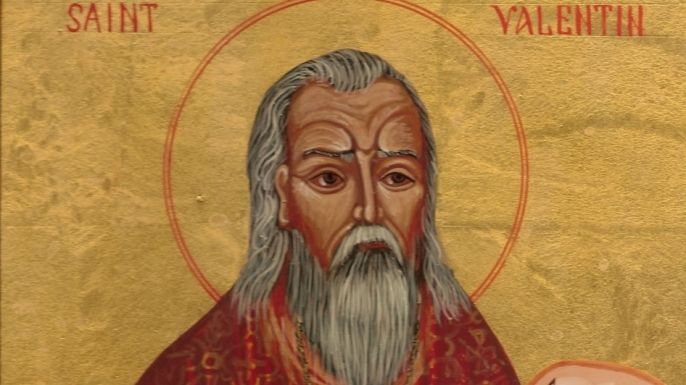Valentine’s Day. I know, I know – you either love it or hate it. What’s the deal with this holiday, anyway? Flowers, chocolate, conversation hearts…how exactly did February 14 come to stand for all of this craziness?
Now that I’m older and my own children are exchanging Valentines with classmates and friends, I don’t feel all of the weirdness, mixed emotions, and denial of expectations that I—and, I think, so many of us—often deal with this time of year.
(Valentine’s Day—who cares? I don’t need a Valentine to know I’m special. It’s just a stupid made-up holiday, created by Hallmark, designed to make lonely people feel even worse. I don’t care at all. WHAT?!? You forgot about Valentine’s Day? How could you?!? I know I said I don’t care but that’s not what I MEANT!)
But here’s the thing: Valentine’s Day is actually one of the oldest holidays we celebrate. And it’s named after St. Valentine, who was a real person.
There are a few early Christian saints that were named Valentine, but the day is most likely named after one in particular: a third century Roman priest. At the time, the Roman empire was falling apart under Claudius II; three different states warred for control and the armies needed every able man.
Apparently, Claudius thought soldiers were better at their job if they were single, so he actually banned marriage. Can you imagine? A priest named Valentine had other ideas.
Despite the risks, Valentine decided to perform marriages in secret—but he got caught. And as a punishment, he was imprisoned and then eventually beheaded. The Church pronounced him a martyr and a saint, and in the fifth century, Pope Gelasius declared February 14 to be St. Valentine’s Day.

A priest who was imprisoned and beheaded is now celebrated each year with flowers, chocolates, and possibly, a few guilt trips. I think it offers us a little perspective. St. Valentine performed those marriages because he believed it was the right thing to do. He believed in marriage and, maybe, he believed in love. And he believed in those things deeply enough to risk his own life for them.
What do you believe in? Whom do you love? Do you believe it so deeply, or love him or her so truly, that you would sacrifice yourself?
Today, if there’s no one to send you flowers—if no one brings you chocolates or candy hearts, if the Hallmark card doesn’t land in your mailbox or on your kitchen table, I get it. I’ve been there. I know that no matter how much you don’t want to care, a tiny part of you still might. I still might. Married or single, no one is immune to it.
This year, I’m meditating on St. Valentine, and how he gave himself up so that others could love. What better way to honor him than to lay aside my own desires and wants, and love the people right in front of me—whomever they might be—with all that I have?



